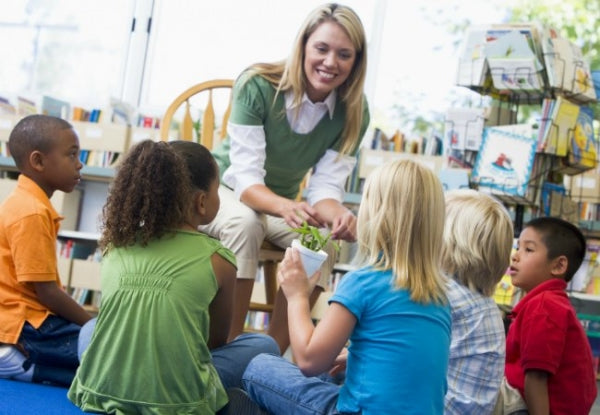First Day of Kindergarten: 5 Ways to Make It Easier

Kindergarten is an exciting milestone for your little one! It can also be a time filled with anxieties and challenges. Here are five ways to make the transition easier on both of you.

1. Keep it positive. When you talk to your child about the upcoming school year and her transition to Kindergarten, be optimistic and positive. When children sense we are anxious, they may become anxious as well. This can be really tough if you’re feeling anxious or worried about her, so it’s important to check in with your own emotions as well, and get support if you need it. Keep in mind that there is no pressure to overhype it, and certainly you should validate your child’s concerns and listen to her fears and worries, but keeping a general sense of optimism will help your child feel more at ease.
2. Get acquainted. If the school does an orientation, that is a great chance for you and your child to go and meet teachers and classmates. If not, it’s a good idea to arrange a tour of a school and a meeting with your child’s teacher. Prepare a one-page cheat sheet about your child for the teacher and include name and nickname, photo, medical conditions, likes and dislikes, interests and talents, etc. This will help the teacher get to know your child and give him or her some conversation starters for building a relationship. If you can arrange for your child to get acquainted with the teacher as well, that’s even better. If he can begin to form a relationship with the teacher before school starts, it will make the separation from you a bit easier. If you can set up a playdate with another child in his class a few times before school starts, having that familiar face in class will be a comfort and help to ease your child’s nerves.
3. Practice. Discuss with your child’s teacher what a typical day will look like and what your child will be doing in the first few weeks of school, and then begin practicing those things over the summer with your child. This will help familiarize your child with the routine and structure of school so that the transition will go a little more smoothly for her. In addition to practicing things like standing in line, sitting still, following directions, etc., it’s a good idea to start practicing social-emotional skills as well. Role play with your child how to introduce herself to others, how to ask to join a group or game, using words to express feelings and wants, sharing, taking turns, and appropriate solutions to conflict. The more you practice, the more confident your child will feel and the better those skills will develop!

4. Find an anchor. Some children can skip off to the classroom without so much as a backward glance, but many children experience separation anxiety. For those children, it’s helpful to find an anchor – something that helps them feel close to you while they’re away. It could be something as simple as a matching necklace, a photo of you, or a note in the lunchbox. It’s a kind of security blanket that your child can take with her every day.
5. Stay attuned. There are sure to be lots of emotional ups and downs as your child transitions into kindergarten, for you and for him! Prepare for a few meltdowns and muster up some extra patience and empathy. As your child processes all of the new experiences, he’s sure to need a safe space to run to. You’ve got this!
source: Rebecca Eanes





